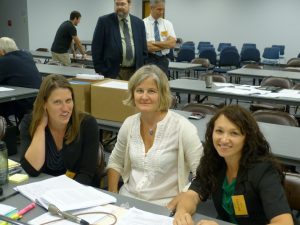
Prairie Rivers Network recently filed our final comments on the proposed state factory farm rule. This rule will regulate water pollution from large livestock operations. If the Illinois Pollution Control Board (IPCB) adopts our recommendations, the rule could significantly reduce the negative impacts of livestock operations on Illinois streams.
Illinois has many streams that are impaired due to bad land application practices and sloppy management of waste storage structures. For example, some livestock operators spread waste on top of frozen or snow-covered ground, but the manure can move off a sloped field and into nearby ditches or streams when the weather warms. Improving the state’s regulations is one way we are trying to make Illinois streams safe for everyone. We don’t want you to ever have to worry about what’s in the water.
We have been involved in this rulemaking since 2009, when we began participating as a stakeholder in meetings to discuss livestock waste management practices. The Illinois EPA convened this stakeholder workgroup, which consisted of environmental groups, livestock associations, and government agencies. The Illinois EPA considered the recommendations of the workgroup and submitted a proposed rule to the IPCB in March 2012.
The proposed rule contained several recommendations we had made. For example, it required livestock operations to have at least 6 months worth of waste storage capacity. This is important because it means the operations can get through the winter without land-applying waste. Winter is one of the riskiest times to apply waste because it can run off into streams during snowmelt. The proposed rule also prohibited application of waste on steep slopes and on fields that already have enough phosphorus to grow a crop.
However, the proposed rule fell short in a number of ways. Surprisingly, Illinois does not require livestock operations to be set back a minimum distance from streams. There also is not a requirement for all large operations to register with the state or get a Clean Water Act permit. And the proposed rule did little to address the problem of livestock waste leaving land application fields via tile drains and then discharging into streams.
Prairie Rivers Network teamed up with Environmental Law & Policy Center and Illinois Citizens for Clean Air & Water to participate in public hearings on the proposed rule. These hearings lasted from August until November 2012 and took place in 5 cities across the state. We testified and presented expert witnesses at these hearings, and cross-examined other witnesses that appeared.
We are excited about our rule recommendations because we think these changes could have meaningful impacts on water quality and public health. Whether the IPCB adopts any of our recommendations will be determined in the coming year. It is clear that science is on our side, but the IPCB must also consider economic practicality amidst a very political climate.







